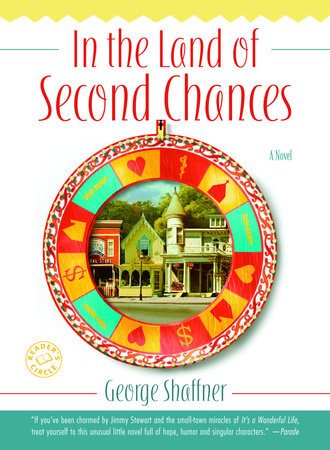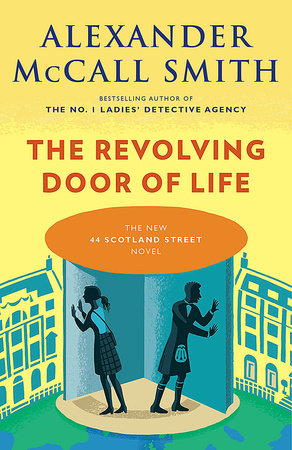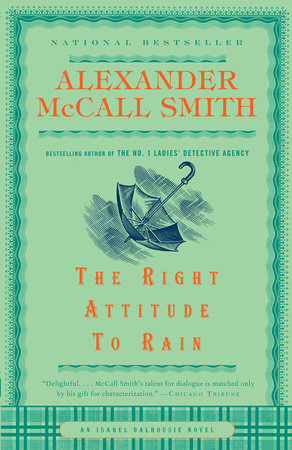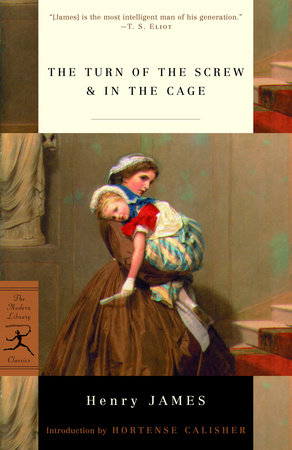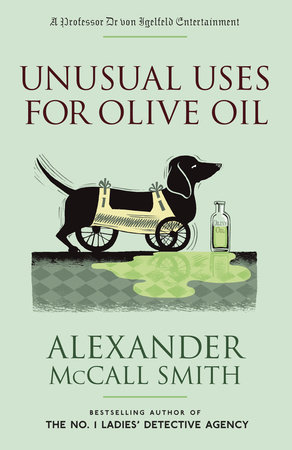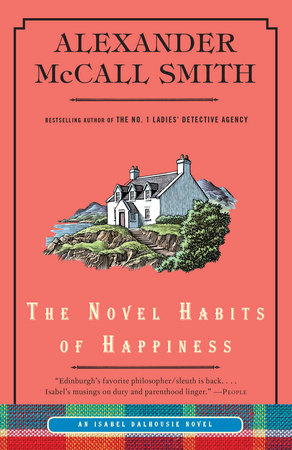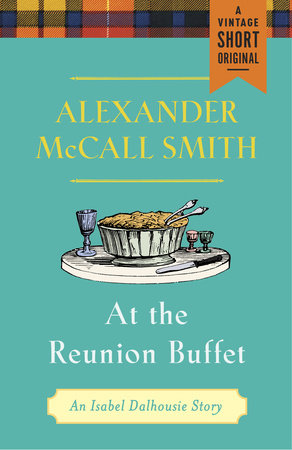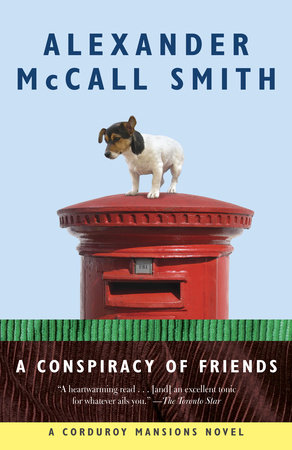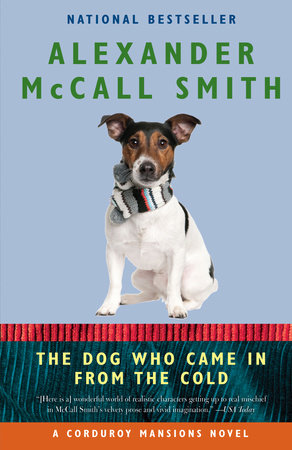A Conversation with the Author
Jennifer Morgan Gray is a writer and editor who lives near Washington, D.C.
Jennifer Morgan Gray: Was there a particular character, image, or idea that prompted you to write In the Land of Second Chances?
George Shaffner: Several years ago, I discovered that my mother-in-law was feeling incredibly mortal and, in fact, quite fearful, because her brother-in-law was dying of cancer. That was a surprise to me because she’s been a devout Catholic all her life. So I wrote a short essay for her that explored some rational reasons for the existence of God. It seemed to make her feel better. A few years later, I found out that one of my arteries was 95 percent blocked. Besides taking it easy after angioplasty, I had some things to sort out for myself. The one at the top of the list–here’s a surprise–was my immortality, or lack thereof. In other words, I had failed to convince myself of it. When I started Second Chances, I knew I could solve the First Paradox of the Benevolent God, which is the philosophical door to reasoned faith. What I didn’t know was that there was a second paradox and a third. Each one of them was like a door to another room, and another piece of the puzzle.
JMG: So had you been thinking about that first paradox for a long time?
GS: I’d been thinking about "reasoned faith" for some time, but I didn’t have a way into the argument. I don’t know where inspiration comes from, but my guess is that it comes from the subconscious. It’s as if each of us has two brains: one working on what you can see and hear; the other working in the background. Whatever the reason, I didn’t derive the solution to the first paradox; it simply landed in my head already solved. Then I began to write.
JMG: This is your first novel. How was writing it different from your nonfiction work? Did the discussion of logic and philosophy from your previous book, The Arithmetic of Life and Death, wind its way into this book in any way?
GS: The two books were very different. The first book was written for "math refugees" with MTV attention spans, meaning that none of the forty essays could exceed fifteen hundred words. It was very clear to me, however, that the road to "reasoned faith" was a longer, more complicated trip. Novels are the perfect place for any sort of intellectual trip. If you set up your characters properly, they’ll argue every side of the problem, and invent some new ones along the way. Quite literally, they’ll force you to examine every aspect of your hypotheses, to be diligent in your process, and to make sure that you’re actually right in the end. Before I began Second Chances, I didn’t have a fiction or a nonfiction agenda. What I had was an interest in looking at faith in a more rational, more sensible way. Now that I’ve been down the fiction path, though, I have no plans to return to nonfiction. I have at least six more novels to write.
JMG: So you have lots of material stored up!
GS: It’s odd, but I do. Seven years ago, at the ripe old age of fifty, I would’ve been hard pressed to come up with a single novel idea. Now, after my first midlife crisis and the remedial one that followed it, I have a backlog that is growing faster than I can write.
JMG: The title In the Land of Second Chances has many possible meanings, alluding to everything from games of chance to the afterlife and the town of Ebb. How did you choose this title? Were there any other ones that you considered, and then abandoned?
GS: One of the hardest things about writing is arriving at a title. The reason is that it’s a team event. All kinds of publishing people are involved, some of them anonymously. Every time I’ve sent a working title up the publishing food chain, it’s been squashed like a fat bug on the windshield of a fast-moving Chevy. As a result, In the Land of Second Chances was a derived title, rather than an inspirational one. I sat at the computer and worked through the various themes and angles of the book, often exploring them for hours at a time with the help of an on-line thesaurus. Eventually, I arrived at The Mansion of Second Chances. That was a bit too "goth" for the committee, but it was close enough to lead us all to the Þnal result.
JMG: The town of Ebb is in itself a character in the book. Did you draw on your past experiences growing up in Nebraska to shape your vision of the town? Could you "see" it in your mind’s eye while you were writing? How is its name significant–the ebb and flow of life, of constant change?
GS: I’m a military brat, but I ended up graduating from high school in Nebraska and both of my college degrees are from the university of the same name. Overall, I lived there for seventeen years, which is considerably more than I’ve lived anywhere else. I’m a Nebraska boy at heart–but I was never a rural Nebraska boy. I had a lot of friends, though, who were very rural, and the nicest people I’ve known. There’s a rural side to my family, too. My mother’s family are Kentucky tobacco farmers, and the other nicest people I’ve ever known. I guess a lot of my favorite people are from the country. The name of Ebb just showed up one day. I never considered changing it. The description of Ebb comes from a town called Hickman, which is on the way to a smaller town called Panama, where the parents of my best friend lived.
JMG: What made you decide to write in the narrative voice of Wilma Porter, owner of the Come Again and general woman-about-town? What was the most difficult aspect of developing and sustaining that funny, insightful voice? Were there any other perspectives from which you considered writing?
GS: The first line I wrote was, "My name is Wilma Porter." That’s very "Call me Ishmael," and I had just finished reading a Melville book at the time, but it wasn’t Moby Dick! Compared to third-person narrative, first-person narrative is a frustrating, confining way to write, but the payoff is personality. Third person narrators are disembodied and detached; first person narrators have names and shapes and relationships, just like every other character in the story, and they can be ill-informed and opinionated and loveable and even downright wrong. There are so many more possibilities. Wilma Porter is the amalgamated voice of three funny, insightful, and very rural women from my past: my great aunt Lucy Van Cleve from Calhoun, Kentucky; my great aunt Ruth Van Cleve from Clarkesville, Tennessee; and Mona Liesveld, my best friend’s mother and the doyenne of Panama, Nebraska. They’re all gone now, but I can hear them as if they were sitting at my dining table, sipping iced teas, and telling me funny stories.
JMG: The specter of Wal-Mart looms large over the town. What is it about Millet’s Store that truly sustains the town and its personality? (The characters seem perfectly happy at Starbucks, though!) Was there a statement about homogenization and progress you sought to make in the book?
GS: Yes, very much so. The problem with a Wal-Mart is that it’s not just a Wal-Mart. It’s an irresistible urge for everyone within a fifty-mile radius to save ten dollars a week. While they’re at it, though, the little stores within that same fifty-mile radius begin to die like flies, because they can’t compete with Wal-mart on price or choice. Eventually, all the little stores go bankrupt, their owners move away, and the towns themselves begin to evaporate from the inside out. It’s an interesting commentary on us, isn’t it? All it takes to kill a lifestyle is saving ten dollars a week.
JMG: You populate Ebb with a vivid cast of characters, from Clem Tucker to Lucy Millet to, of course, Vernon Moore. How did you evoke each of these characters so vividly? Did anything they do surprise you?
GS: I have about a dozen, self-inflicted "rules of writing." One of them is "No [expletive] stereotypes." In real life, every person has a personality; a few prominent strengths and weaknesses, and a quirk or two worth noting. I don’t see why every character in a book shouldn’t have the same sort of stuffing. If a character has three lines, that same character deserves to have a history, a point-of-view, and a few annoying traits. All of my characters surprise me from time to time, just like real people do. Sometimes it’s a revelation. Other times, it’s a pain in the ass.
JMG: Vernon Moore’s philosophy is, ÒUncertainty is the spice of life.Ó How does he express this during his time in Ebb? How does he encourage the town’s residents to embrace his personal credo?
GS: Vernon has a theory of "reasoned faith" that is described in various places in the book, but especially in the chapter "Empathy for God." It contains the most important question he asks, which is, What would you want most if you were all-powerful, all-knowing God? The answer is the foundation of Vernon’s philosophy. In a simple, elegant way, it makes sense of God, the universe, and us, all at once.
JMG: Those are pretty weighty topics. Did you find it difficult to synthesize and simplify them for the book?
GS: To me, that was the challenge of the book. I had to make the philosophical stuff as easy and straightforward as a recipe for brownies: two cups of this, one tablespoon of that. It also meant that I had to write a book that could succeed on two levels: one was to write a very human story about hope; the other was to have a simple but philosophical search for a recipe for faith. The interesting thing is that most people read the book at the first level, but then they find out later that the second level has affected them, and in a very positive way.
JMG: The book has an intriguing spiritual element in the Three Paradoxes. Were there any particular writers you referenced while writing the book?
GS: Not specifically. From a general writing perspective, though, I have benchmarks just like I have rules: Mark Twain for storytelling; Joseph Conrad for scene-setting; Walter Mosley for character depth; Carl Hiaasen for humor and irreverence; and Hermann Hesse for philosophical fiction. They’re all out of reach, but what a bunch of great targets!
JMG: Vernon Moore makes a tremendous impact on Ebb in his six days there (a number that’s also significant in religion). Do you think that the townspeople had a similar influence on him? How does he change during his time in Nebraska?
GS: Vernon is not like you and me. His job is to help other people, not the other way around. Nevertheless, two people had a significant impact on him in Second Chances–both of them women. He was swept away by Loretta, but he also developed a great affection for Wilma.
JMG: How does Lucy Millet inspire the town of Ebb, particularly her father and grandfather? How does Calvin and Clem’s relationship change as a result of her illness?
GS: Lucy is Perspective. By the tragic circumstances of her disease, she is the one who reminds Clem that there is more to life than money. Paradoxically, she also reminds her father, with Vernon’s help, that there is more to life than any one life. To a significant extent, Lucy’s relationship with Calvin is a portrayal of a phenomenon that I’ve observed too many times: It is often the fatally ill patient who is the cheerleader for his or her well-wishers. Lucy has been dealt a mortally bad hand, but she is strong enough to play it. Her father has one job: to explain to her that she will get to play again, but he can’t do it without her help. I thought it was an extraordinarily ironic and difficult challenge for Calvin. Did you agree?
JMG: Yes. As I was reading, I wondered what he would do. I wasn’t exactly sure that he would accept that challenge.
GS: You weren’t supposed to know. Calvin was playing the same awful hand his daughter had been dealt. He had to feel like shit when he was playing it: He had to be incredibly angry, he had to be sad, he had to be constantly upset, and he had to be unsure of everything.
JMG: Vernon says, "I believe that God wants me to experience the absolute fullness of my life to my very last breath." Who in Ebb has fallen away from this mindset? Who ultimately embraces it?
GS: In real life, almost everyone I have ever known has fallen away from that mindset. We’ve all forgotten that our lives are an incredible, impossible gift. In the book, of course, Calvin is the most obvious example. Not only has he fallen away from the concept that life is a gift, he has rejected it. Fortunately, however, Vernon finds a way to sell him some hope, but it takes some doing.
JMG: I love the Quilting Circle–the economic and social powerhouse of women who shape Ebb. What is it about these women that made them so compelling to write about? Why do divorced women love to return to Ebb?
GS: Ebb is the "last oasis of nice." It’s a place where a woman can shop, or be with her friends, or even walk around at night, and not be afraid of men. Wilma and the other founders of the Quilting Circle made it that way when they invented the Quilting Circle, and then turned it into a financial and political force. Women have been on the short end of the stick for at least ten thousand years. Why isn’t there a Quilting Circle in every town? It’s a mystery to me. The world needs them; I can’t understand why they haven’t evolved.
JMG: A great deal of humor infuses this book–from Loretta’s come-hither attitude to Clara’s almost-silent one. What were the challenges of writing a novel that combined philosophy, religion, and humor?
GS: Isn’t life a gumbo of all of those things? Some parts are funny and some are sad, some are superficial and some are deep, some are exciting and some are horribly dull. As a novelist, the only part you want to throw out is the dull bit. In my opinion, the reader should laugh or cry or be surprised in every chapter. It’s Novel 101.
SPOILER ALERT: The next question reveals an important plot point.
JMG: I was surprised by Clem’s proposal to Wilma at the novel’s end! What change inspired him to ask for her hand in marriage? Why did you deliberately leave her answer open-ended?
GS: Vernon asked Clem to name his three greatest memories. That one question changed Clem’s way of thinking. As for Wilma’s answer to his proposal: Stay tuned.
JMG: While you’re writing, are there any creative processes or routines you like to follow?
GS: I make most of my new ground in the afternoon, usually between two and seven. Sometimes I write until much later, but rarely. Then I get up the following morning and edit what I wrote the day before, a process which has the effect of pointing my brain in the direction I want to go next. In the afternoon, if there’s enough IQ left in the tank, I’m off again.
JMG: What can your readers expect to see next from you– more from the town of Ebb, I hope?
GS: Second Chances is the first book of a trilogy. In the second, Vernon returns to Ebb to sell "some charity." You can probably guess what it is he returns to sell in the third and final installment.
